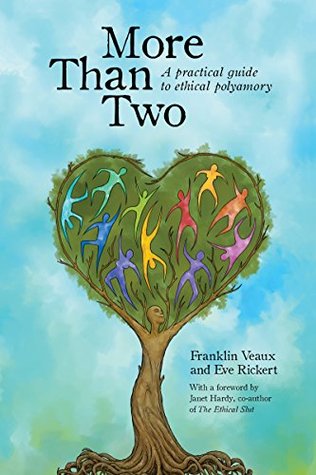More on this book
Community
Kindle Notes & Highlights
Read between
October 18 - December 31, 2023
We believe relationships that are deliberately, intentionally constructed are more satisfying, and more likely to lead to happiness, than relationships whose shape is determined by default social expectations.
When the people in the relationship are more important than the structure of the relationship—when they are free to advocate for their needs, to grow even in unexpected ways, when they feel a sense of personal empowerment over their relationships—the relationships themselves tend to be strong, resilient and happy.
Communicating our needs, and equipping others to meet them, succeeds more often than attempting to restrict or coerce another into meeting them.
Develop the habit of behaving with integrity, and all of your life will become simpler and smoother.
If we do not believe in our worth, we become disempowered, unable to advocate for our needs.
It’s important to build relationships in such a way that the people within them can feel secure, can feel a sense of belonging, and can have some basic expectations they can rely on. But it’s also essential that people have agency in their relationships, that relationships be built on a foundation of choice and free will. These are not mutually exclusive goals.
Real compassion requires strong boundaries, because if we are letting someone take advantage of us, it becomes very hard to be authentically vulnerable to them.
Compassion means coming from a place of understanding that others have needs of their own, which might be different than ours, and extending to them the same understanding, the same willingness to appreciate their own struggles, that we would want them to extend to us.
If you don’t have the ability to negotiate for individual space when you need it, coercion has entered your relationship.
Rules tend to come from the idea that it’s acceptable, or even desirable, for you to control someone else’s behavior, or for someone else to control yours. Boundaries derive from the idea that the only person you really control is yourself.
Losing your self-identity opens you up to being manipulated or losing your ethical integrity.
Empathy must exist hand-in-hand with boundaries.
If you emphasize personal autonomy to the exclusion of listening to your partners’ needs, you’re not asserting boundaries, you’re being a jerk.
Access to another person’s body and mind is a privilege, not a right. Nobody should ever be punished for expressing a boundary or for revoking consent.
Many people say, “I need rules in my relationship,” but when they are asked why, it quickly becomes obvious that what they need is actually something else. It is usually something like security or stability, a sense of empowerment, predictability, or safety. Those are all reasonable needs. What’s not obvious is that it’s possible to have those things without rules.


